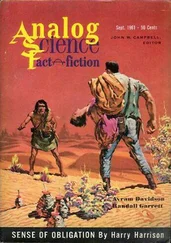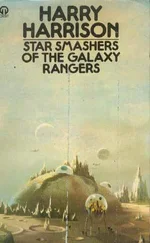M Harrison - Viriconium
Здесь есть возможность читать онлайн «M Harrison - Viriconium» весь текст электронной книги совершенно бесплатно (целиком полную версию без сокращений). В некоторых случаях можно слушать аудио, скачать через торрент в формате fb2 и присутствует краткое содержание. Жанр: Фэнтези, на английском языке. Описание произведения, (предисловие) а так же отзывы посетителей доступны на портале библиотеки ЛибКат.
- Название:Viriconium
- Автор:
- Жанр:
- Год:неизвестен
- ISBN:нет данных
- Рейтинг книги:3 / 5. Голосов: 1
-
Избранное:Добавить в избранное
- Отзывы:
-
Ваша оценка:
- 60
- 1
- 2
- 3
- 4
- 5
Viriconium: краткое содержание, описание и аннотация
Предлагаем к чтению аннотацию, описание, краткое содержание или предисловие (зависит от того, что написал сам автор книги «Viriconium»). Если вы не нашли необходимую информацию о книге — напишите в комментариях, мы постараемся отыскать её.
Viriconium — читать онлайн бесплатно полную книгу (весь текст) целиком
Ниже представлен текст книги, разбитый по страницам. Система сохранения места последней прочитанной страницы, позволяет с удобством читать онлайн бесплатно книгу «Viriconium», без необходимости каждый раз заново искать на чём Вы остановились. Поставьте закладку, и сможете в любой момент перейти на страницу, на которой закончили чтение.
Интервал:
Закладка:
“They quarried this to build the house,” he said. “A long time ago.”
The rock was pale, coarse-textured, full of little quartz pebbles. Higher up in the quarried bays hung mats of ivy.
“Now you can see what I mean,” he said.
I was more interested in his house, which lay like a metaphor in the wide flat valley. It was a light fawn colour. Its four vast avenues of stone thrust out from it across the old alluvial bench, black, black. What it meant I had no idea. It was one of those places where the past speaks to us in a language so completely of its own we have no hope of understanding. Puddles of water in the worn paving reflected the sky; I could see the gaps in the walls, like bites, where the Yule Greave had taken stone for the fortifications, a line of hasty revetments and trenches stretching across the valley lower down, where it sloped away to the south.
“Incredible,” I said.
He pointed south, past the fortifications.
“There were dozens of places like this once,” he said, “all the way down to the sea. They’re overrun now.”
He made an angry, miserable gesture.
“If the city won’t help, why are we bothering? We don’t build out here anymore: we only pull it down.”
“I’m not sure I agree,” I said.
I was tempted to ask him why, if he didn’t want to destroy the old walls, he didn’t reopen the quarry and use fresh stone, but his face was now full of a kind of savage self-hatred and self-pity, and he said,
“What’s the point of discussing it?”
A retired bravo knows nothing about building. The city had made him what he was. Perhaps he knew it.
“You’ve heard it all before, I expect. Anyway you can see how close they’ve come. They’ll be across the river and over the fortifications in a month, less if we don’t get help. See: there, and there? You can see the sun glinting on their camps.”
“Will you show me the house before I go?” I asked.
He looked at me in surprise. He was pleased to be asked, I thought, but he said, “Oh, the inside’s a ruin now. We do our best, but it’s all dust and mice.”
He seemed reluctant to go down the hill now he had got up it. He watched the little grey hawk hovering and stooping, hovering and stooping, as it worked its way up and down the slopes of sun-warmed bracken. He took a last look at the great stone symbol which filled the valley and which he had lived in for twenty years without understanding, then began to descend slowly. New shoots, he observed, were beginning to appear green and delicately curled between the ruined bracken stems. The turf, flattened and bleached by the previous month’s snow, was springing up again.
“That air!” he exclaimed, breathing ecstatically a gust of wind which brought the scent of may blossom up from the valley. Then he stopped suddenly and said:
“What’s it like in the city these days?”
I shrugged.
“We have similar problems to yours,” I heard myself tell him, “but not so extreme. Otherwise it is very beautiful. New buildings are springing up everywhere. The horse chestnuts are in blossom along the Margarethestrasse and in the Plaza of Unrealised Time.”
I did not mention the torn political cartoons flapping from the rusty iron railings, or the Animal Mask Societies with their public rituals and increasingly unreasonable demands. But he was remembering a different city anyway “I suppose the place is still full of clerks and shopkeepers?” he said. “And those wonderful tarts who overcharge you in the Rue Ouled Nail?”
He laughed.
“We’ll always look to Uroconium,” he said sentimentally, and quoted, “ ‘Queen of the Empire, jewel on the beach of the Western Sea.’ ”
The walls that surrounded the house had already warmed to the weak sunshine, trapping a fraction of its heat to give up to the elder and ivy in the overgrown gardens. Two or three hawthorns filled the air with the scent of the may, which in that confined space seemed drugged and dangerous. Insects murmured in the little orchard and among the fruit bushes which had long ago run to bramble in the shelter of the walls. Above the garden rose the honey-coloured stone of the main building, covered in creeper and bright yellow lichens. The wind blustered round its complicated roofs.
Inside the house he had someone bring out a bottle of lemon genever, and invited me to have some.
“Foul stuff, but the best we can get out here.”
We drank silently for a while. The Yule Greave seemed to sink into himself, into his own sense of abandonment and futility. “Dust and mice,” he said, staring round in disgust at the high gloomy walls and the silent, massive, oppressive old furniture, “dust and rats. This is the only room we ever light a fire in.” Later he began to talk about the old queen’s reign. It was the common story of infighting at court and violence in the city. He had known, or said he had, Sibylle, Axonby, and even Sten Reventlow. Many of the actions in which he had taken part struck me as being little more than outrages, committed by people hardly able to help themselves, whose philosophy was that their blood was a book. He kept his souvenirs of these “little wars” in one of the upper rooms, he said. There was some peculiar stuff among it all, stuff that made you think. We could go and look at it later if I was interested.
“I’d like that if there’s time,” I said.
“Oh, there’ll be time,” he said. “It’s mostly clothes, weapons, stuff we picked up in their houses. You wouldn’t credit the hanks of hair, the filthy pictures they were always looking at.”
He asked if I had done any fighting in the city, and I said that I hadn’t. There was a silence, then he went on musingly: “The women were the worst. They would hide in doorways, and reach out for your face or your neck as you walked past. Hide themselves in doorways. They’d have bits of glass embedded in a cake of soap, do you see, and slash out at your neck or your eyes.” He looked at me as if he were wondering how much more he could tell me. “Can you believe that? Women who would slash your eyes?” He shook his head. “I hated going up the stairs in those places. The lamps would all be out. You never knew what would be in a cupboard. A woman or a child, screaming at you. Or else they’d show you something foul, obscene, and laugh. The old queen would never bear them near her, not at any price.”
“So I have heard,” I said. “It is less of a problem now.”
He chuckled.
“Old men like me cleared it up for you,” he said. “We can be proud of that. I was with the Feverfew Anschluss until Antic Horn’s entryists broke it up.”
A little later his wife came in. By this time he had drunk most of the bottle. He stared at her with a kind of muddled resentment.
She was a tall woman, though not perhaps as tall as him, very thin and ethereal, dressed in a fashion long out of date in the city. She seemed not quite real to me, like a picture of my mother in a darkened room. I guessed she had been one of the old queen’s women-in-waiting, given to him like the house and the valley in return for his loyalty in the backstreets and tavern brawls. Her hair, an astonishing orange colour, was worn long and crimped, to emphasise the height of her cheekbones, the whiteness of her skin, and the odd, concave curve of her features.
Over one arm she was carrying a piece of heavily embroidered cloth which I recognised as being part of the “mast horse” ceremony: it would be used to hide the operator of the animal’s snapping jaw. I had never seen such an elaborate cloth in use. When I mentioned this she smiled and said:
“You’ll have to ask Ringmer if you want to know more about this one. He was born near here, and his father worked the horse at All Hallows.”
Читать дальшеИнтервал:
Закладка:
Похожие книги на «Viriconium»
Представляем Вашему вниманию похожие книги на «Viriconium» списком для выбора. Мы отобрали схожую по названию и смыслу литературу в надежде предоставить читателям больше вариантов отыскать новые, интересные, ещё непрочитанные произведения.
Обсуждение, отзывы о книге «Viriconium» и просто собственные мнения читателей. Оставьте ваши комментарии, напишите, что Вы думаете о произведении, его смысле или главных героях. Укажите что конкретно понравилось, а что нет, и почему Вы так считаете.











